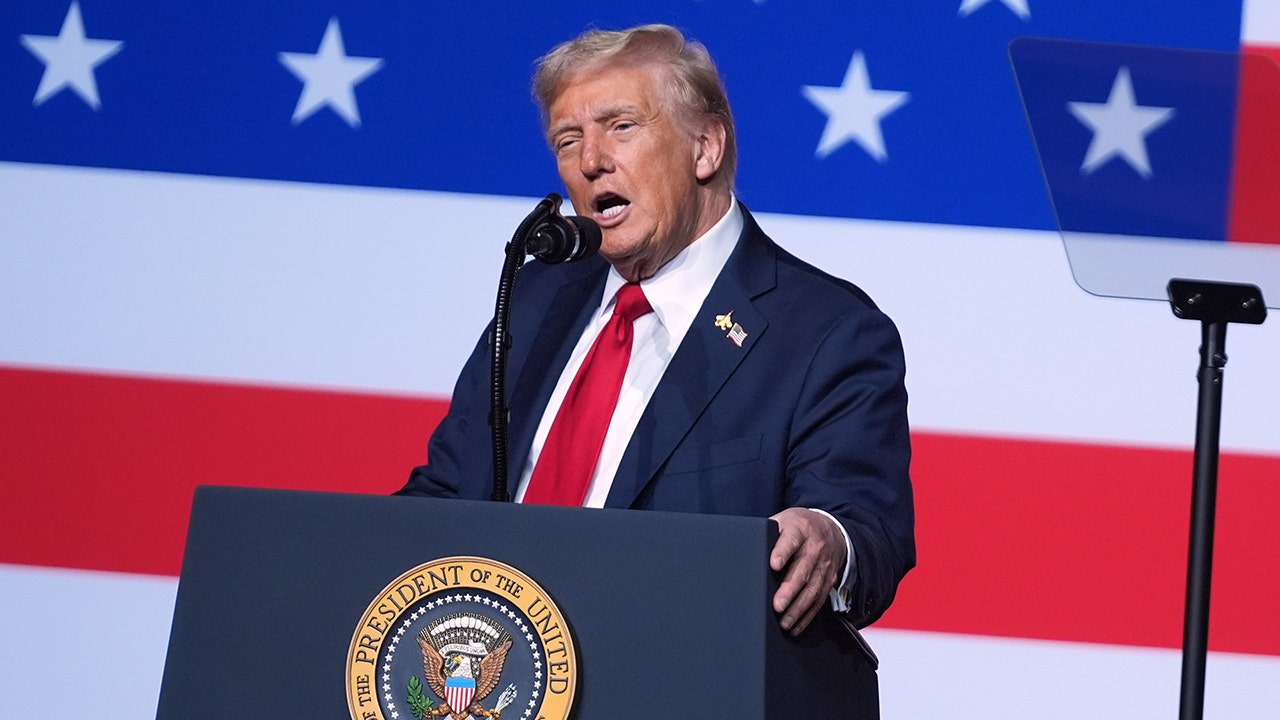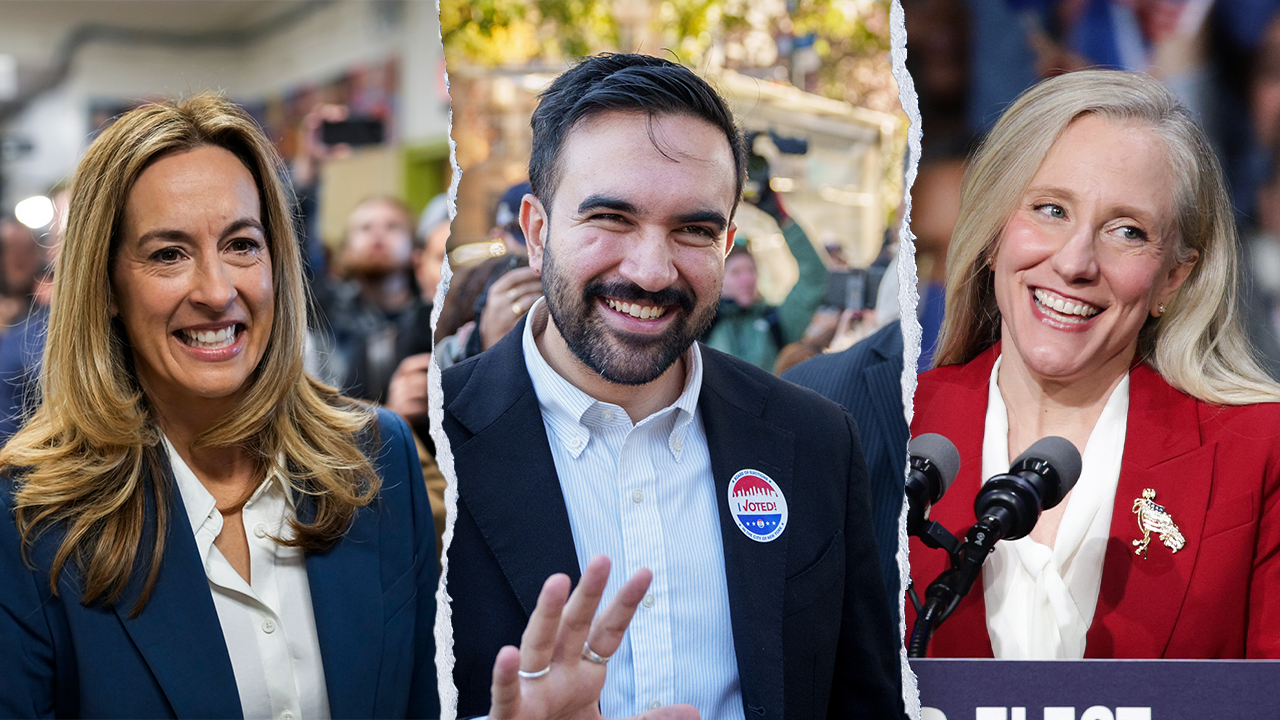TEL AVIV—Since arriving in the Persian Gulf this week, President Donald Trump has engaged in a flurry of regional diplomacy that in many cases has appeared to sideline Israel’s national security interests.
In an address to an investment forum in Riyadh on Tuesday, Trump called for an end to Israel’s “horrible” war against Hamas “as quickly as possible” and announced the lifting of U.S. sanctions on Syria’s Islamist-led government—after Israeli prime minister Benjamin Netanyahu reportedly asked him not to do so. On Wednesday, Trump outlined a softened U.S. position in ongoing negotiations with Iran over its nuclear program, making no mention of past demands, echoed by Israel, that the regime dismantle its facilities entirely. Trump then met with Syrian president Ahmed al-Sharaa, a former Al Qaeda terrorist whom Israeli officials have continued to refer to as a jihadist, and later praised al-Sharaa as a “young, attractive guy. Tough guy. Strong past. Very strong past. Fighter.”
Trump’s freewheeling Persian Gulf tour continues a string of recent moves that the president has made in the Middle East with little apparent regard for Israel’s wishes—and in some cases, in direct opposition to them. But both Israeli and U.S. officials have denied talk of a growing rift, and the two countries have remained directionally aligned against Iran’s “axis of resistance.”
En route to Qatar on Wednesday, Trump told reporters aboard Air Force One that his trip, which runs through Friday and notably does not include a stop in the Jewish state, is “good for Israel.”
“Having a relationship like I have with these countries … I think it’s very good for Israel,” he said.
Netanyahu said in a video posted to his X account on Sunday that “spin” that “Trump and Netanyahu are no longer” is baseless and driven mostly by his political rivals. The “relationship is excellent,” Netanyahu insisted.
NBC News reported on Sunday that Trump has privately expressed frustration over Netanyahu’s continuation of the Gaza war, calling it a “wasted effort” that undermines his plans to rebuild the strip. Israel’s Channel 12 reported that Trump’s Middle East envoy, Steve Witkoff, recently told families of hostages held in Gaza, “Israel is prolonging the war, even though we do not see where further progress can be made.” And Axios reported on Tuesday that the Trump administration directly negotiated with Hamas to secure Monday’s release of hostage Edan Alexander, a dual Israeli-American citizen, without informing Israeli officials.
Netanyahu’s biggest frustrations with the Trump administration have reportedly been over Iran. According to NBC News, Netanyahu was “particularly upset” when Trump said last week that he had not yet decided whether Iran would be allowed to enrich uranium under the terms of a nuclear deal. Israel’s Channel 13 reported on Sunday that members of Netanyahu’s inner circle have complained of “chaos” in the Trump administration.
In radio interview on Tuesday with Israel’s Kan public broadcaster, David Amsalem, a minister from Netanyahu’s Likud party, complained about Trump’s unpredictability, citing the deal to release Alexander and the surprise end last week of a U.S. bombing campaign against Yemen’s Iran-backed Houthi rebels.
“Everything operates according to the president’s whims,” Amsalem said. “Sometimes that works in our favor, and sometimes it doesn’t.”
At the same time, there are indications that speculation about a rupture between Trump and Netanyahu are overblown. Trump has not, by any account, pressured Netanyahu to end the Gaza war or to cancel a major ground offensive in the strip set to begin once the president leaves the region. In a meeting with Gulf leaders in Riyadh on Tuesday, Trump reiterated the U.S. position that Hamas must be removed from power in Gaza, saying the Palestinian people cannot achieve a “future of safety and dignity” under terrorists who “delight in raping, torturing, and murdering innocent people.”
Even as Trump has pursued a nuclear deal with Tehran, he has ramped up economic sanctions on the regime and kept a military option firmly on the table. Trump told radio host Hugh Hewitt last week that Iran has two options for its nuclear centrifuges: “Blow them up nicely or blow them up viciously.”
While Trump has not made regional normalization of relations with Israel a condition of his Gulf diplomacy, he has repeatedly expressed confidence this week in the future expansion of the Abraham Accords, matching Israel’s no-hurry attitude on the issue. The president told reporters after his meeting with al-Sharaa on Wednesday that the Syrian leader had agreed in principle to join the pact, though Trump acknowledged “they have a lot of work to do.”
Amid the uncertainty and anxiety in Israel about Trump’s intentions, some on the Israeli right have called for the Jewish state to emulate the president’s “America first” foreign policy.
Abu Ali Express, a prominent anonymous commentator in Israel, argued in a blog post on Monday, “Israeli interests are important to Trump, and when they do not conflict with American interests, then Trump acts in favor of Israeli interests.”
“Trump takes care of the U.S. Israel takes care of Israel,” Abu Ali Express added. “That’s how it works.”
Netanyahu conveyed a similar message to Israeli lawmakers on Sunday. During a meeting of the Foreign Affairs and Defense Committee, Netanyahu said that Israel needs to move toward ending its reliance on U.S. military aid.
“We receive close to $4 billion for arms,” he said. “I think we will have to wean ourselves off of American security aid, just as we weaned ourselves off of American economic aid.”
Amit Halevi, a Likud lawmaker who has advocated for greater Israeli independence from the United States, called Netanyahu’s remarks “important.”
“Biden or Trump, Witkoff or [former secretary of state Antony] Blinken, there is one clear conclusion from the last two years,” Halevi told Jewish Insider earlier this week. “Israel needs to be independent and not reliant. [Israel is] already 77 years old, it’s time to be weaned.”
If there is any major takeaway from Trump’s visit so far, that may be it.
Read the full article here







